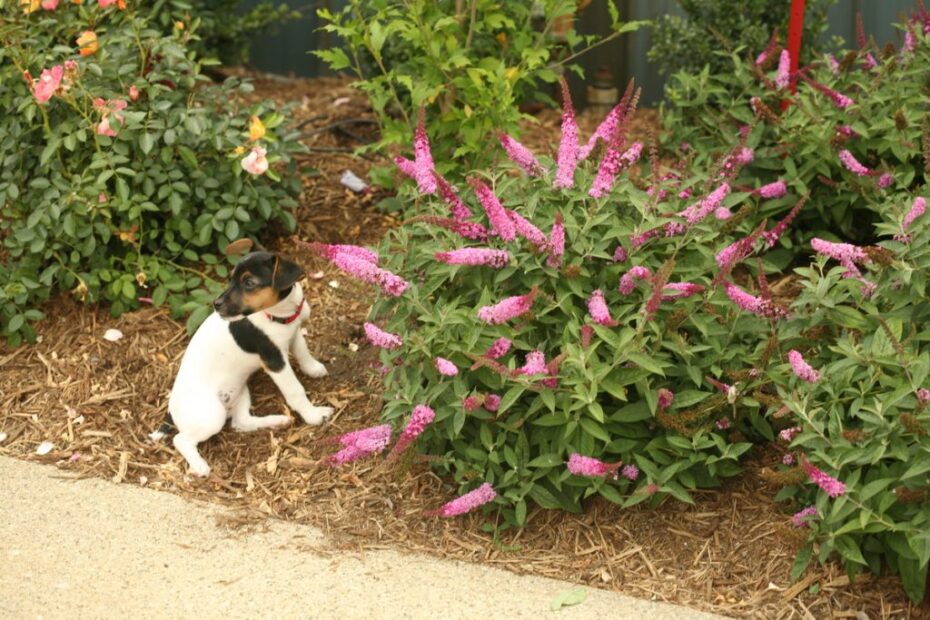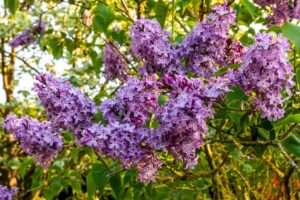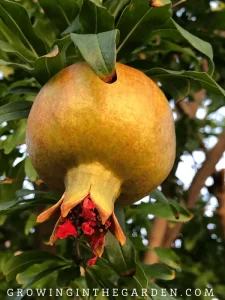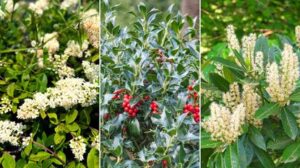Dog-Friendly Shrubs: Safe and Beautiful Choices
Shrubs are a great way to add beauty and interest to your yard, but not all shrubs are safe for dogs. Some shrubs contain toxic chemicals that can make your dog sick if they ingest them. Others have sharp thorns or spines that can injure your dog if they brush up against them.
If you’re looking for dog-friendly shrubs, there are plenty of great options to choose from. These shrubs are safe for your dog to eat, and they won’t hurt them if they brush up against them. They’re also all beautiful and low-maintenance, making them a great choice for any yard.

Here are a few of our favorite dog-friendly shrubs:
- Rosemary is a fragrant evergreen shrub that’s perfect for adding a touch of Mediterranean flair to your yard. It’s also edible, so your dog can enjoy nibbling on the leaves.
- Lavender is a beautiful flowering shrub that’s also known for its calming properties. It’s safe for dogs to eat, and the scent can help to soothe them if they’re feeling anxious.
- Boxwood is a dense, evergreen shrub that’s perfect for creating privacy screens or hedges. It’s also non-toxic to dogs, so you can rest assured that your furry friend is safe.
- Yarrow is a hardy perennial that blooms in late summer and fall. It’s a great choice for pollinator gardens, and it’s also safe for dogs to eat.
- Bee balm is a fragrant flowering shrub that’s perfect for attracting butterflies and hummingbirds. It’s also edible, so your dog can enjoy the sweet nectar.
The Best Dog-Friendly Shrubs
The Best Dog-Friendly Shrubs
When it comes to choosing shrubs for your yard, it’s important to consider whether or not they’re safe for your dog. Some shrubs can be toxic to dogs if ingested, while others can simply be a nuisance if your dog likes to chew on them.
To help you make the best choice for your furry friend, we’ve put together a list of the best dog-friendly shrubs. These shrubs are all non-toxic and are unlikely to cause any harm to your dog if they’re ingested.
Non-Toxic Shrubs for Dogs
- Azaleas
- Camellias
- Chrysanthemums
- Daffodils
- Hydrangeas
- Irises
- Lavender
- Magnolias
- Peonies
- Roses
- Viburnums
Shrubs to Avoid
While the following shrubs are not necessarily toxic to dogs, they can be a nuisance if your dog likes to chew on them.
- Barberry
- Holly
- Juniper
- Pyracantha
- Rhododendron
- Yew
Tips for Choosing Dog-Friendly Shrubs
When choosing dog-friendly shrubs, it’s important to consider the following factors:
- Size: Choose shrubs that are a size appropriate for your dog. Small shrubs are less likely to be knocked over or damaged by your dog, and they’re also easier to keep out of reach.
- Location: Plant shrubs in an area where your dog is less likely to have access to them. This could be in a sunny spot in the front yard, or in a shady spot in the backyard.
- Material: Choose shrubs that are made of a durable material that your dog won’t be able to chew through. This could be wood, metal, or plastic.
By following these tips, you can help to keep your dog safe and happy while also adding beautiful shrubs to your yard.
Table of Dog-Friendly Shrubs
| Shrub | Toxicity | Chew Resistance |
|---|---|---|
| Azaleas | Non-toxic | Low |
| Camellias | Non-toxic | Low |
| Chrysanthemums | Non-toxic | Low |
| Daffodils | Non-toxic | Low |
| Hydrangeas | Non-toxic | Low |
| Irises | Non-toxic | Low |
| Lavender | Non-toxic | High |
| Magnolias | Non-toxic | High |
| Peonies | Non-toxic | High |
| Roses | Non-toxic | High |
| Viburnums | Non-toxic | High |
| Barberry | Toxic | Low |
| Holly | Toxic | High |
| Juniper | Toxic | High |
| Pyracantha | Toxic | High |
| Rhododendron | Toxic | High |
| Yew | Toxic | High |
When choosing shrubs for your yard, it’s important to consider which plants are safe for your dog. Some plants can be toxic to dogs, so it’s important to do your research before you add anything new to your landscape.
Here are a few tips for choosing safe shrubs for your dog:
- Do your research. Before you buy any plants, check to make sure they’re not toxic to dogs. You can find this information online or by talking to your veterinarian.
- Choose plants that are not known to be toxic to dogs. Some of the most common toxic plants for dogs include azalea, rhododendron, oleander, and foxglove. There are many other plants that can be toxic to dogs, so it’s important to do your research before you add anything new to your landscape.
- Plant your shrubs in an area where your dog is not likely to have access to them. If you have a curious dog, it’s best to plant your shrubs in an area where they can’t reach them. This could be a fenced-in area or a raised bed.
Here is a list of some safe shrubs for dogs:
- Barberry
- Boxwood
- Crabapple
- Dogwood
- Flowering quince
- Holly
- Hydrangea
- Laurel
- Lilac
- Mock orange
- Rosemary
- Spirea
- Viburnum
By following these tips, you can help keep your dog safe from toxic plants.
Planting and Caring for Dog-Friendly Shrubs
Planting and Caring for Dog-Friendly Shrubs
When you’re looking for plants to add to your yard, it’s important to consider your furry friends. Some plants are toxic to dogs, so it’s important to do your research before you plant anything.
There are many dog-friendly shrubs that are both safe and beautiful. Here are a few of our favorites:
- Azaleas are a popular choice for yards because they’re easy to care for and they come in a variety of colors. Azaleas are also non-toxic to dogs, so you can plant them with confidence.
- Hollies are another good option for yards with dogs. They’re evergreen, so they’ll provide year-round interest, and they’re also non-toxic to dogs.
- Rosemary is a fragrant herb that’s perfect for adding a touch of Mediterranean flavor to your yard. Rosemary is also non-toxic to dogs, so you can enjoy its scent without worry.
- Boxwood is a dense, evergreen shrub that’s perfect for creating a formal hedge or border. Boxwood is also non-toxic to dogs, so you can use it without fear.
When planting dog-friendly shrubs, it’s important to choose a location that’s safe for your dog. Avoid planting shrubs near areas where your dog is likely to play or run, as this could lead to them being scratched or injured.
It’s also important to make sure that the shrubs you choose are getting the right amount of sunlight and water. Most dog-friendly shrubs prefer full sun, but some can tolerate partial shade. As for water, most shrubs need regular watering, but some can tolerate drought conditions.
By following these tips, you can add beautiful, dog-friendly shrubs to your yard without worry.
Table of Dog-Friendly Shrubs
| Shrub | Toxicity to Dogs |
|---|---|
| Azaleas | Non-toxic |
| Hollies | Non-toxic |
| Rosemary | Non-toxic |
| Boxwood | Non-toxic |
| Yews | Toxic |
| Cypress | Toxic |
| Junipers | Toxic |
| Thuja | Toxic |
While most shrubs are safe for dogs to eat, there are a few that can cause problems. Here are some of the most common problems associated with dog-friendly shrubs:
- Indigestion. Some shrubs contain toxins that can cause indigestion in dogs. Symptoms of indigestion include vomiting, diarrhea, and abdominal pain.
- Skin irritation. The sap or leaves of some shrubs can irritate a dog’s skin, causing redness, swelling, and itching.
- Allergies. Some dogs are allergic to the pollen or other allergens found in shrubs. Symptoms of allergies can include sneezing, coughing, and skin irritation.
If you think your dog has eaten a poisonous shrub, it’s important to call your veterinarian immediately. They will be able to assess the situation and provide the necessary treatment.
Here are some tips for keeping your dog safe from poisonous shrubs:
- Keep an eye on your dog when they’re in the yard. If you see them eating a shrub, immediately remove them from the area and rinse their mouth with water.
- Plant non-toxic shrubs in your yard. There are many beautiful and dog-friendly shrubs to choose from, such as azaleas, camellias, and hydrangeas.
- Be aware of the plants in your neighborhood. If you know there are poisonous shrubs in your neighborhood, keep your dog away from them.
Preventing and Treating Dog Damage to Shrubs
Preventing and Treating Dog Damage to Shrubs
Dogs can be a lot of fun, but they can also be a lot of work.
If you have shrubs in your yard, it’s important to take steps to prevent your dog from damaging them. Here are a few tips:One of the biggest challenges of owning a dog is dealing with the damage they can do to your yard..
- Choose shrubs that are resistant to dogs. Some shrubs are more likely to be damaged by dogs than others. When you’re choosing shrubs for your yard, be sure to select ones that are known to be dog-friendly.
- Train your dog not to chew on shrubs. If your dog has a habit of chewing on shrubs, you can train them to stop. There are a number of different ways to do this, but one of the most effective methods is to use positive reinforcement. Whenever your dog leaves a shrub alone, give them a treat or praise them.
- Provide your dog with other outlets for their chewing. If your dog is bored, they’re more likely to chew on things they shouldn’t. Make sure to provide your dog with plenty of toys and other objects that they can chew on, so they don’t feel the need to chew on your shrubs.
If your dog does damage your shrubs, there are a few things you can do to repair them. Here are a few tips:
- Cut off the damaged branches. If your dog has chewed off a branch of a shrub, you can simply cut it off and the shrub will usually grow back.
- Prune the shrub. Pruning can help to encourage new growth and make your shrub look more attractive.
- Feed your shrub. Fertilizing your shrub can help it to recover from damage and stay healthy.
By following these tips, you can help to prevent and treat dog damage to your shrubs.
Tips for Dog-Friendly Gardening
Tips for Dog-Friendly Gardening
When it comes to gardening, there are a few things you can do to make your yard more dog-friendly. Here are a few tips:
- Choose plants that are safe for dogs to eat. Some plants, such as lilies, can be toxic to dogs, so it’s important to do your research before planting anything in your yard.
- Keep your yard clean and free of debris. Dogs love to explore, and they’re not always the most careful when they’re doing it. Make sure to keep your yard free of sharp objects, broken glass, and other debris that could hurt your dog.
- Install a fence or other barrier around your garden. This will help to keep your dog from digging up your plants or eating anything that he shouldn’t.
- Train your dog to stay away from your garden. If you have a dog that’s prone to digging or eating plants, you may need to train him to stay away from your garden. There are a number of ways to do this, such as using positive reinforcement or negative reinforcement.
By following these tips, you can create a dog-friendly garden that’s both safe and beautiful.
Table of Safe and Toxic Plants for Dogs
| Plant | Toxicity |
|---|---|
| Azaleas | Toxic |
| Calla lilies | Toxic |
| Daffodils | Toxic |
| Foxglove | Toxic |
| Hyacinths | Toxic |
| Iris | Toxic |
| Lilies | Toxic |
| Oleander | Toxic |
| Rhododendrons | Toxic |
| Tulips | Toxic |
| Plant | Non-Toxic |
|---|---|
| Abelia | Non-Toxic |
| Barberry | Non-Toxic |
| Butterfly bush | Non-Toxic |
| Camellia | Non-Toxic |
| Chrysanthemum | Non-Toxic |
| Euonymus | Non-Toxic |
| Forsythia | Non-Toxic |
| Hydrangea | Non-Toxic |
| Juniper | Non-Toxic |
| Lilac | Non-Toxic |
| Peony | Non-Toxic |
| Rose | Non-Toxic |
| Spirea | Non-Toxic |
| Viburnum | Non-Toxic |
The Spruce is a gardening and home improvement website that offers a variety of articles on dog-friendly shrubs. This article, “The Best Dog-Friendly Shrubs for Your Yard,” provides a comprehensive list of shrubs that are safe for dogs to eat, as well as tips on how to plant and care for them.
2. The American Society for the Prevention of Cruelty to Animals (ASPCA)
The ASPCA is a non-profit organization that works to prevent animal cruelty and promote humane treatment of animals. This article, “Dog-Friendly Plants,” provides a list of plants that are safe for dogs to eat, as well as information on how to keep your dog safe from poisonous plants.
Key Takeaways
Outro
With so many beautiful and dog-friendly shrubs to choose from, you can easily add some greenery to your yard without having to worry about your furry friend. By considering your dog’s size, activity level, and chewing habits, you can find the perfect shrubs to add a splash of color and interest to your outdoor space.
And as an added bonus, your dog will love having new places to explore and sniff around!
- Cat Palm vs Majesty Palm: Which Should You Choose? - June 30, 2024
- Flowers That Survive Winter: Discover the Exceptional No. 5 - June 30, 2024
- The Ultimate Guide to the Growth and Care of the Black Pagoda Lipstick Plant - June 29, 2024





